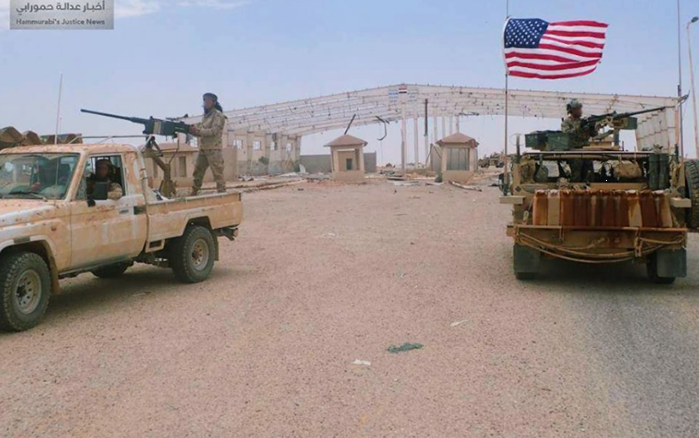US officials have backed away farther from Donald Trump’s December 19 order to withdraw all 2,000 American personnel from Syria.
A “senior State Department official” said Friday that the US has no timeline for departure, although there is no plan to stay indefinitely.
Trump originally set a 30-day limit for the withdrawal, which he impulsively adopted during a December 14 phone call with Turkish President Recep Tayyip Erdoğan. He persisted with the order despite the advice of civilian and military advisors, leading to the resignations of Defense Secretary Jim Mattis and the US envoy to the anti-Islamic State coalition Brett McGurk.
But the Pentagon quickly briefed the press on a schedule of 60 to 100 days. Then earlier this week the timetable became 120 days, before the dropping of any set time yesterday.
EA on talkRADIO: Why US May Not Withdraw from A Partitioned Syria
Pentagon officials pushed back on Friday against Trump’s statement, fed by Erdoğan, that the Islamic State is “99% defeated”. They said the US-backed, Kurdish-led Syria Democratic Forces are still taking territory from ISIS.
The Islamic State has been reduced to a pocket of territory near the Iraqi border which has been under attack by the SDF since the summer. Pentagon spokesman Navy Commander Sean Robertson said the SDF captured the town of Hajin on December 25 and the town of Kashmah on January 2.
Islamic State's Last stand in Syria? Exclusive footage from @gabreil-chaim on the fight for Hajin & bodycam footage, via SDF, of IS fighters on town's ouskirts. Arab & Kurdish forces now making swift progress to Sha'afeh where the core of IS, including its leadership, remain. pic.twitter.com/6geZh7ktzN
— Quentin Sommerville (@sommervilletv) January 4, 2019
Meetings with Turkey and Israel
The State Department official, briefing reporters before next week’s visit to the Middle East by Secretary of State Mike Pompeo, said:
We have no timeline for our military forces to withdraw from Syria.
It will be done in such a way that we and our allies and partners maintain pressure on ISIS throughout and we do not open up any vacuums for terrorists.
A “senior administration official”, traveling with National Security Advisor John Bolton on his own trip to the Middle East, pushed back. He said Trump had received assurances from military commanders that the anti-ISIS mission “can be done in weeks”.
But the Pentagon and senior advisors have also said a quick withdrawal would be an abandonment of Kurdish partners who have been fighting ISIS. Any US departure would leave Kurdish factions, who hold about 27% of Syrian territory, vulnerable to attack and pressure by Turkey — who is allied with Syrian rebels — and/or pro-Assad forces.
Ankara considers the Syrian Kurdish Democratic Union Party (PYD) and its YPG militia, the leading faction in the Syrian Democratic Forces, to be part of the Turkish Kurdish insurgency PKK.
And Bolton, the Pentagon, and other agencies have said, up to mid-December, that a US presence in Syria is essential to check Iranian influence in the country. Trump dismissed this in a rambling appearance before reporters on Wednesday: “[Iranians] can do what they want.”
Bolton will meet high-level officials in Israel and Turkey. He will be accompanied in Ankara by the Chairman of the Joint Chiefs of Staff, Gen. Joseph Dunford, and James Jeffrey, the US special envoy to Syria and now to the anti-ISIS coalition.
Trump belittled the situation in Syria in his Wednesday stream of consciousness, saying the country is nothing but “sand and death”.
Syria Daily, Jan 3: Trump — It’s Nothing But “Sand and Death”

